I wrote an HTTP client plugin for Sublime Text called Requester, and one of its features is to convert calls to cURL to Requests, and vice versa.
If you're using Sublime Text this is probably your fastest, easiest option. If not, here's the code that actually handles the conversion from cURL to Requests. It's based uncurl, but with various improvements and bug fixes.
import argparse
import json
try:
from urllib.parse import urlencode, parse_qsl
except ImportError: # works for Python 2 and 3
from urllib import urlencode
from urlparse import parse_qsl
if __name__ == "__main__":
parser = argparse.ArgumentParser()
parser.add_argument('command')
parser.add_argument('url')
parser.add_argument('-X', '--request', default=None)
parser.add_argument('-d', '--data', default=None)
parser.add_argument('-G', '--get', action='store_true', default=False)
parser.add_argument('-b', '--cookie', default=None)
parser.add_argument('-H', '--header', action='append', default=[])
parser.add_argument('-A', '--user-agent', default=None)
parser.add_argument('--data-binary', default=None)
parser.add_argument('--compressed', action='store_true')
parsed_args = parser.parse_args()
method = 'get'
if parsed_args.request:
method = parsed_args.request
base_indent = ' ' * 4
post_data = parsed_args.data or parsed_args.data_binary or ''
if post_data:
if not parsed_args.request:
method = 'post'
try:
post_data = json.loads(post_data)
except ValueError:
try:
post_data = dict(parse_qsl(post_data))
except:
pass
cookies_dict = {}
if parsed_args.cookie:
cookies = parsed_args.cookie.split(';')
for cookie in cookies:
key, value = cookie.strip().split('=')
cookies_dict[key] = value
data_arg = 'data'
headers_dict = {}
for header in parsed_args.header:
key, value = header.split(':', 1)
if key.lower().strip() == 'content-type' and value.lower().strip() == 'application/json':
data_arg = 'json'
if key.lower() == 'cookie':
cookies = value.split(';')
for cookie in cookies:
key, value = cookie.strip().split('=')
cookies_dict[key] = value
else:
headers_dict[key] = value.strip()
if parsed_args.user_agent:
headers_dict['User-Agent'] = parsed_args.user_agent
qs = ''
if parsed_args.get:
method = 'get'
try:
qs = '?{}'.format(urlencode(post_data))
except:
qs = '?{}'.format(str(post_data))
print(post_data)
post_data = {}
result = """requests.{method}('{url}{qs}',{data}\n{headers},\n{cookies},\n)""".format(
method=method.lower(),
url=parsed_args.url,
qs=qs,
data='\n{}{}={},'.format(base_indent, data_arg, post_data) if post_data else '',
headers='{}headers={}'.format(base_indent, headers_dict),
cookies='{}cookies={}'.format(base_indent, cookies_dict),
)
print(result)
You could make a script with this code, e.g. curl_to_request.py, and call this script from the command line like so. It will work for both Python 2 and Python 3.
python curl_to_request.py curl -X POST -d 'key2=value2&key1=value1' 'http://httpbin.org/post'
python curl_to_request.py curl -X POST -H 'Content-Type: application/json' -d '{"key2": "value2", "key1": "value1"}' 'http://httpbin.org/post'
python curl_to_request.py curl -X POST -H 'Content-Type: application/json' -d '[1, 2, 3]' 'http://httpbin.org/post'
python curl_to_request.py curl -X POST -H 'Content-Type: application/json' -d '{"name": "Jimbo", "age": 35, "married": false, "hobbies": ["wiki", "pedia"]}' 'http://httpbin.org/post'
python curl_to_request.py curl -X GET 'http://httpbin.org/get?key2=value2&key1=value1'
python curl_to_request.py curl -X GET -H 'key1: value1' -H 'key2: value2' 'http://httpbin.org/headers'
python curl_to_request.py curl -X GET -b 'key1=value1;key2=value2' 'http://httpbin.org/cookies'
